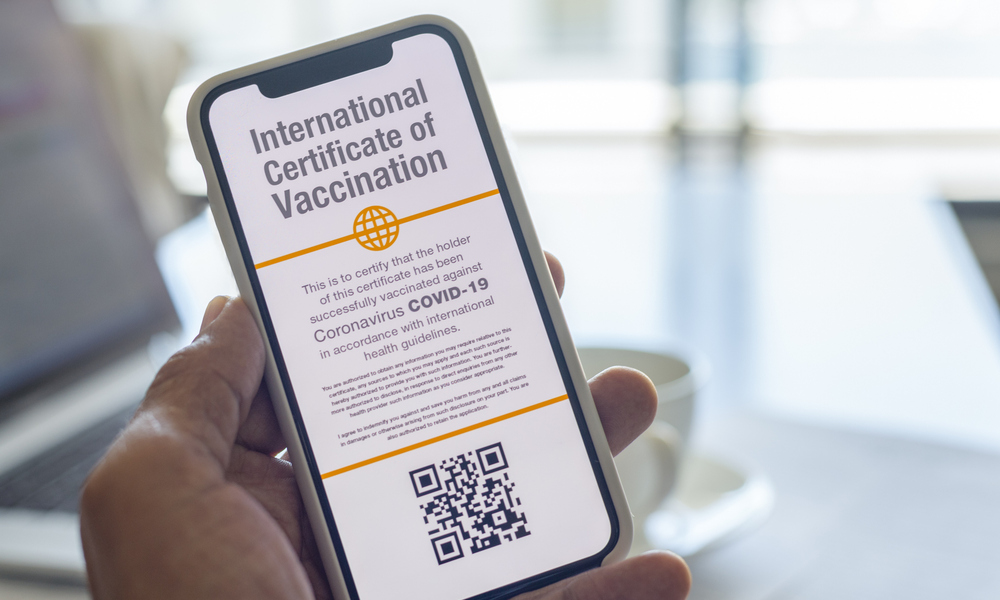
Weekly Now: Apps to Connect Passport, COVID-19 Data Coming Soon
The International Air Transport Association's Travel Pass apps, designed to take complexity out of post-pandemic travel, are on track to launch soon, IATA says. Also: Could the pandemic put the five-day workweek out to pasture?
When business travelers return to the skies in force, they’re most likely going to need more than just a driver’s license or passport. They might need COVID-19 test or vaccination records—and that could mean long lines at the airport.
Last fall, the International Air Transport Association announced a technology solution to help reopen borders to travelers: The IATA Travel Pass, it said, will be a series of mobile apps that match passport data with biometric data to ensure up-to-date information and confirm that a person is safe to travel. The apps are based on existing technology and are intended for flexibility, given the number of airlines IATA works with, as well as privacy.
In a recent interview with PYMNTS, IATA Senior Vice President of Airport, Passenger, Cargo, and Security Nick Careen noted that a digital identification strategy for travel was already in the works before the pandemic. The organization shifted it into high gear last year as it became clear that an identification solution might be needed to get travel back up and running after the crisis passes.
“We pivoted in the early part of the pandemic around the June/July timeframe, to explore what [those] potential scenarios may look like post-pandemic when travel begins to resume again,” Careen said.
The Travel Pass will alert the traveler whether he or she will have to show proof of COVID-19 test results or vaccination, and it will provide an easy way to confirm that information to airlines and authorities while traveling, he said.
IATA says the apps are on track to become available in February or March.
Other recent headlines:
A light at the end of the pandemic tunnel. After nearly a year of professionals staying home to work remotely, many are planning their return to the office and the road, according to the Global Business Travel Association. Its latest coronavirus poll found that more than half of businesses expected to return to the office by the third quarter of 2021 and to restart nonessential travel soon after, according to a news release. While hopes are high, clarity is not: “There is still a large amount of uncertainty around what will be (or is currently) required for employees to return to business travel among GBTA members,” the association said.
Speaking up for free school meals. The School Nutrition Association wants to make universal free breakfast and lunch a permanent part of the school day, according to FoodNavigator-USA. Last fall, the U.S. Department of Agriculture extended free meals through the end of the current school year. Now, SNA argues in a position paper that making free meals permanent would improve food security and ease logistical challenges around the school lunch program. “Since the pandemic, more than 4 in 10 children live in households that struggle to meet expenses, putting children at risk of going without the nutrition they need to focus on their studies,” SNA reports.
Five-Day Fadeout?
Why remote work may render the 5-day workweek obsolete. My latest @FastCompany. https://t.co/Tsl4pvzfho#remotework #productivity #WorkFromHome #futureofwork #leadership #LeadershipDevelopment
— Scott Dust (@scott_dust) January 22, 2021
The five-day workweek is probably as ingrained in your schedule as your morning coffee.
But is it efficient? And does it still make sense? Scott Dust, Ph.D., a management professor at Miami University, thinks not—and, in an article for Fast Company, says that remote work may finally shake the schedule out of our systems.
Calling the five-day workweek “a sociocultural artifact,” Dust says that technology has rendered the old timeframe obsolete and that a more flexible approach can improve work-life balance.
“It’s time to get realistic about how people work in the 21st century,” Dust writes. “To the degree that we can acknowledge what is actually happening—and what is actually effective—we can begin to experiment with work hours in ways that simultaneously increase productivity and well-being.”
ICYMI …
How a pasta shortage made an association go viral. Really.
Need some good insights on going niche? Check out the final part of our recent series on email strategies.
An event-comeback necessity. Samantha Whitehorne provides an overview of COVID-19 screening and testing at events.
(courtneyk/E+/Getty Images Plus)






Comments